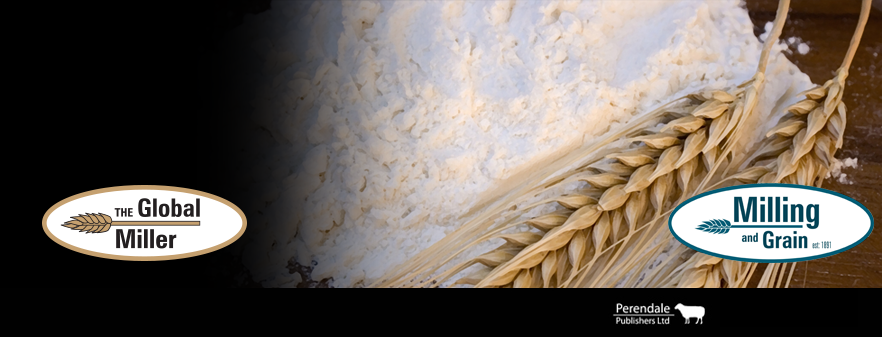 |
| Professor Paul Davies, Vice Principal and Professor of Agricultural Systems, Royal Agricultural University, UK |
Excellent work by the International Feed Industry Federation (IFIF) – working closely with the UN Food & Agriculture Organisation (FAO) and Codex – during the last decade has ensured that the animal feed industry has become safer, and an integral part of the global food supply chain so essential to health and wellbeing – not to mention our food security. Many of you know the significant contributions to improving animal feed supply and safety made in recent years by such contributors as Andrew Speedy (previously FAO), Roger Gilbert (Perendale Publishers and previously IFIF), Eric Miller (Cambridge University), together with Reg Preston, Ron Leng, Freddy Ib and many others worldwide. All credit to them.
I'd also like to take the opportunity to comment on key issues and concerns currently affecting the animal feed business. Of particular interest to me personally was being able to contribute to the excellent Bridge2Food congress held in Rotterdam in September, the 6th Protein Summit 2013: Platform for Future Supply, Health and Technology meeting. Not to be missed next time, if you get the chance to go. It provided me, especially, with the opportunity to make comparisons with progress reported previously at the FAO conference 'Protein Sources for the Animal Feed Industry', held with great success in Bangkok in 2002. What has not changed is the demand-led 'livestock revolution' worldwide, and the continuing demand for even greater quantities of animal feeds.
Increasing demand for meat, milk, eggs and other livestock products continues to drive up global animal populations – not to mention the substantial expansion we are seeing in aquaculture. If available, and if we can afford to buy them, most of us are consuming more and more of these products. Of course, this growing demand for high value protein foods is being driven most of all by population growth, rising incomes and urbanisation.
Although the rate of population growth is slowing down, we could still reach 10 billion by 2030 from today's 7.2 billion global citizens. A growing demand, for sure, but with 1 billion hungry today (the same as in 1950) and 1 billion more reported to be suffering from 'hidden hunger' from nutritional imbalance, not all can enjoy it. Overall demand for livestock products could reach 376 million tonnes by 2030, an increase of 50 percent since 1997. Looking further ahead, it is even predicted that by 2050 over 326 million tonnes of meat products will be demanded in developing countries alone, and milk consumption will have doubled to 585 million tonnes. For which, say prediction models, we will need an additional 1 billion tonnes of cereal grain for animal feed. Which, nevertheless, augers rather well for the future of our industry.
However, one noticeable difference between the feed conferences in 2002 and 2013 are the increasing concerns being voiced about the impact of higher livestock numbers and modern approaches to animal husbandry. There are ethical concerns, relating particularly to the increasing replacement of mixed smallholder farms with intensive, specialist, industrialised livestock facilities, but also worries about environmental impact. These were highlighted in the FAO book Livestock's Long Shadow, which many will know. Concerns have also mounted over human health, as large numbers of domesticated animals (especially those near urban centres) pose to us an increasing disease risk.
Quite clearly, a much more holistic approach to livestock farming is required if we will ever achieve greater sustainability of future production – greater sustainability 'from plough to plate'.
Technically, two critical issues continue to make a serious impact on our global food and feed system: the source of animal feed nutrients (especially protein), and the efficiency of feed conversion. We need more available protein sources, as was highlighted during the recent Rotterdam meeting; this could include such sources as algae, insects and microbial products in the future. In addition to this, we must of course continue to look for and develop a greater diversity of plant protein crops for feed. We are still having to live with an unacceptable – and unsustainable – protein deficit in Europe for animal feed manufacture, which relies on the importing of more than 75 percent of its protein-rich material (mostly soybeans).
Soybean prices have doubled in recent times, and fishmeal prices have also increased considerably. This makes the feed industry highly vulnerable, not to mention substantially increasing the cost of livestock rearing in Europe. For the sustainable intensification of farming, we also need to keep chasing greater efficiency of feed conversion, for the sake of the security of our future food and feed supply. It's said that a hectare of rice crop could feed 19 people a year, but the same area devoted to beef production could only feed one individual.
There will be much to consider from a sustainability perspective in future years, if we are to deliver greater benefits to the industry. Against the backdrop of increasing climate change on an ever more fragile planet, all this assumes a much greater significance.
Paul Davies


No comments:
Post a Comment